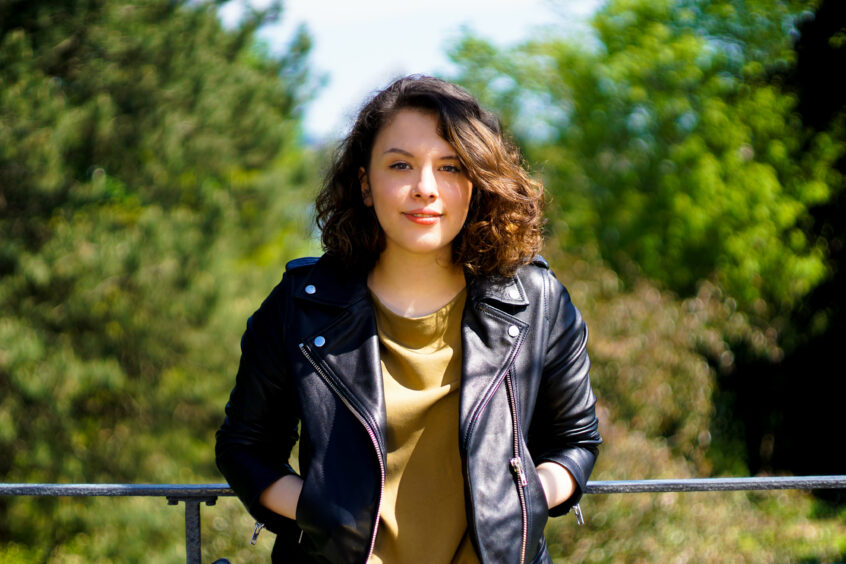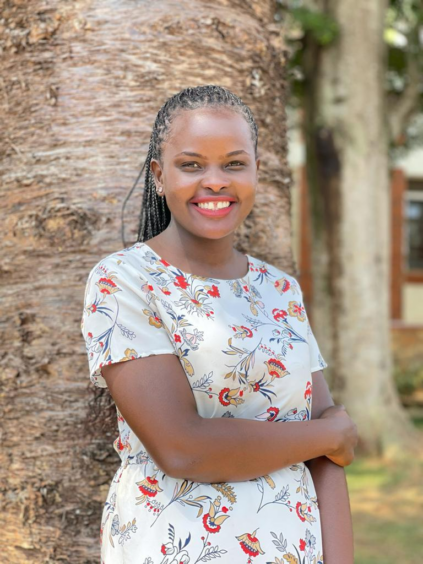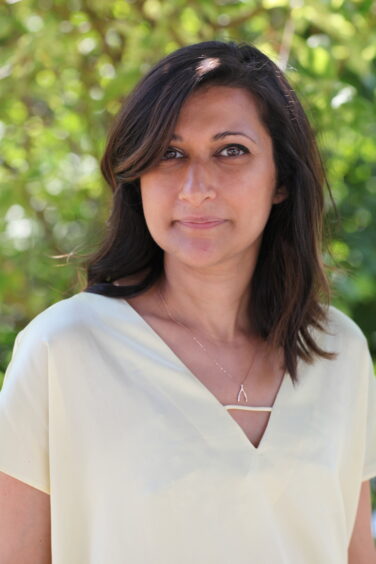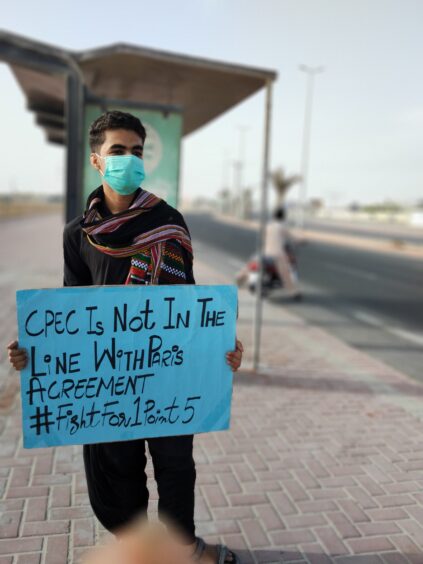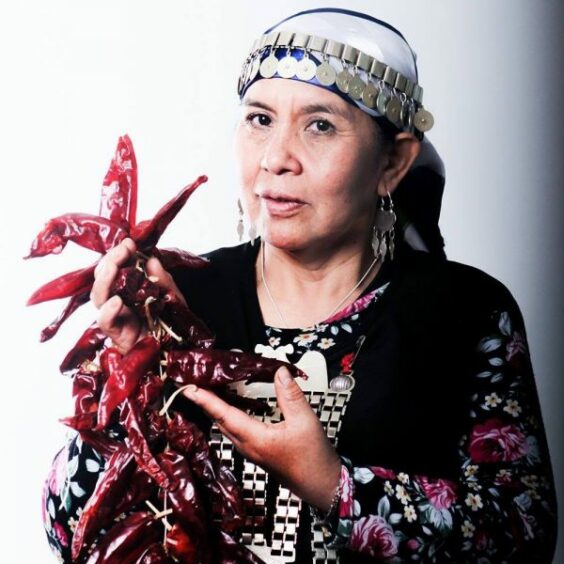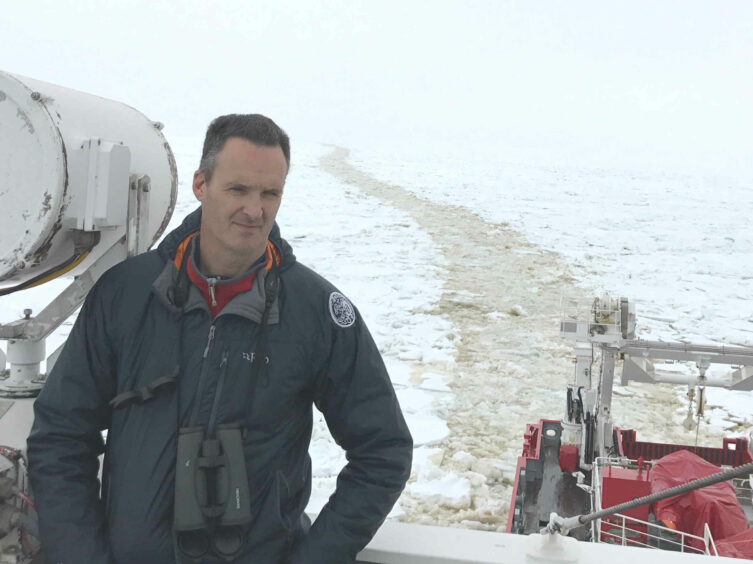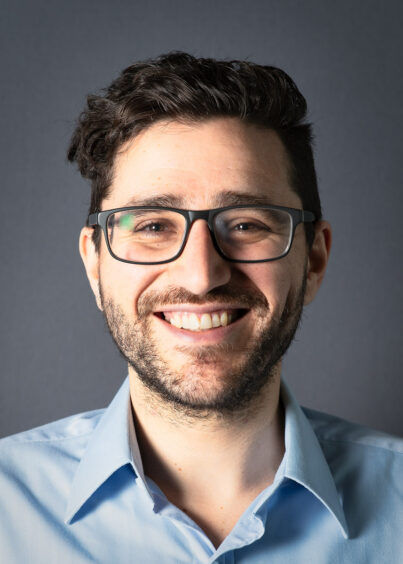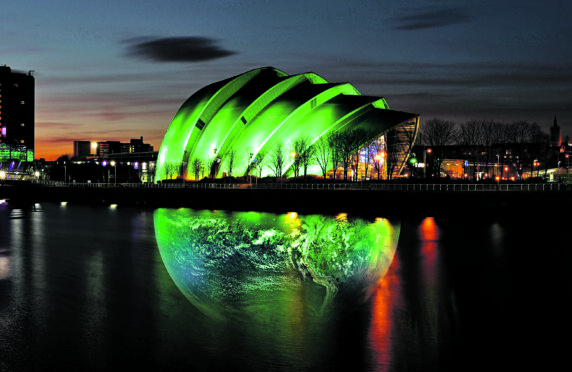
The world will turn to Scotland over the next two weeks but the world has already arrived as delegates from around the globe come to Glasgow to demand action on climate change.
Here, we speak to just seven, one from each of the world’s continents, to hear their story and understand why the climate crisis is global and why no part of our world can be left behind.
Delara Burkhardt – Europe
By Rob Hyde
Delara Burkhardt, 28, believes it is impossible to overstate the importance of Cop26 and which leaders turn up matters less than the action agreed by those who do.
A member of Germany’s Social Democrats Party, she has been an MEP since 2019. Today she serves as a member of the Group of Progressive Alliance of Social Democrats and on the Committee on the Environment, Public Health and Food Safety.
She said: “I’m not prepared to play these fatalistic games where some say unless China does something there is no point Europe trying. We all need to do our bit. And there have been many positive announcements made recently from China, Russia, the USA, the UK and elsewhere.”
Burkhardt was born in 1992 in the northern port city of Hamburg, to a German father, and an Iranian mother who came to the federal republic as a political refugee.
She grew up in Siek, 17 miles out of Hamburg and in the south of Schleswig-Holstein. In 2015 she did her A-levels in nearby Ahrenburg, and it was here that she decided to go into politics.
“When the accelerated ‘turbo-A-level’ was brought in by the local conservative-liberal government, it was so hard to suddenly have to learn everything in less time. It enraged me this directly impacted young people but was done without their consent or involvement.
“As my mother had come as a political refugee, and my father is a social democrat, I was raised openly discussing politics at home. But my A-level experience showed me if I really wanted to try and change something in the world then I needed to go into politics.”
Burkhardt joined the Social Democrats aged 15, and became the first regional executive of the Jusos, the SPD youth organisation, where she served until 2019. In October 2020, the European parliament adopted a landmark report, led by Burkhardt, which proposed legislation to halt and reverse EU-driven deforestation.
Though delighted the EU was addressing the issue, Burkhardt said: “The proposal should go beyond forests and cover other important ecosystems, such as the Pantanal wetlands in Brazil that are converted for the production of agricultural commodities sold on the European market.”
At Cop26 Burkhardt says the top thing on her wish list would be finalising the EU’s policy on natural carbon sinks, which aim to capture 310 million tonnes of carbon by 2030. “I would also like funding made available for environmental actions in other parts of the world,” she added. “I would like there to be more of a sense of international solidarity.”
Evelyn Acham – Africa
By Peter Swindon
Climate change campaigner Evelyn Acham was attacked by police for taking part in an anti-pollution protest outside her country’s parliament.
The 30-year-old from Kampala in Uganda claims she was then interrogated and warned her family may never see her again.
Acham was released on the condition she would not take part in demonstrations again but she plans to freely protest when she comes to Glasgow as a Cop26 delegate.
The activist was inspired to protest against climate change by fellow countrywoman and climate campaigner Vanessa Nakate who was famously cropped out of a photo with Greta Thunberg taken at the 2020 World Economic Forum in Davos.
“You didn’t just erase a photo, you erased a continent,” Nakate tweeted after the original picture was widely circulated.
Acham said it was Nakate who came to her rescue when she was detained by police at Uganda’s parliament.
She said: “We were detained in a room and the number of policemen quickly increased to 15. They were interrogating us, shouting in our faces. They accused us of threatening the government and said they could make us disappear… our families would never see us again. When Vanessa arrived they let us go but warned us never to gather in a public place again.”
Acham is a graduate of Makerere University and holds a bachelor of science in land economics. She works as a valuer for land sales in Uganda but spends every hour of her free time on climate activism.
Acham began taking part in climate strikes in 2019 and is the now the Rise Up Movement’s national co-ordinator in Uganda. She said: “Climate change is one of the biggest problems we are facing in my country and across Africa. Pollution is visible in our cities.
“In Uganda the temperature gets so high you get a headache when you’re in the sun. It’s getting worse every year. People in poorer areas are going without drinking water because water sources have dried up. Prolonged droughts mean families lack food, maybe surviving on a small meal a day and some die of hunger.
“We have also seen floods in western Uganda. We experience very heavy rains. Schools are destroyed, roads are destroyed, health centres are destroyed. People drown, sometimes in cars during flash floods.”
Three-quarters of Uganda’s population of 43 million live in rural areas and rising temperatures and seasonal rainfall threaten vital crops such as coffee, rice and maize.
Acham says many in her country don’t yet connect the problems to climate change due to crackdowns on protests by the authorities.
President Yoweri Museveni has been in power since 1986 and his security forces are reported to arrest, beat and kill demonstrators.
Acham will be in Glasgow for two weeks for the conference.
She said: “I will be campaigning for my life and lives of my family and friends. I will be travelling to Glasgow to attend Cop26 as an observer for the first week. In the second week, I will be speaking at fringe events and taking part in protests with activists from Scotland.
“This Cop is our last chance to make world leaders listen to us. I am confident they will hear our voice, but they need to have the political will to change things. There is a chance it will not be a meaningful Cop, but we are hopeful.
“The UK government has to set an example. They want to give the go ahead for the Cambo oil field and that is sad. The host nation must understand how serious this is and they should not give the licence.
“The relationship with fossil fuel companies needs to end now. World leaders need to listen to the solution not stay in the problem.”
Juvarya Veltkamp – North America
By Ross Crae
One of the key elements of changing the tide on climate change will be getting businesses to channel money into green jobs and projects.
It’s the specialist area of Canada Climate Law Initiative director Juvarya Veltkamp, who heads to Glasgow from the University of British Columbia.
“We’re having to change so many things so fast,” she said. “In terms of how we make decisions, we can’t just have dollars and pounds, we need to have carbon and social capital as our new currencies.
“I’m hoping my contribution is to help connect the sustainable finance world to green projects, to make sure climate’s at the heart of financial decisions that are made because it isn’t currently.
“We can’t do any of this alone, everything is interconnected and systemic and we have to collaborate.”
The deadly consequences of climate change were brought close to home for Veltkamp by wildfires that devastated parts of British Columbia this summer.
In what was one of the most anomalous extreme heat events observed on earth since records began, parts of the state hit close to 50C.
On Canada Day, July 1, instead of celebrations there was mourning after the village of Lytton was virtually wiped off the map by the blazes.
“We’re a rainforest, with a temperate mild climate,” Veltkamp said. “In some way it’s like a safe haven from climate catastrophe because we have really progressive building policies and low carbon emission buildings.
“But this showed that nobody is immune. It was over 30C at night, and when most people don’t have air conditioning that’s really dangerous. 577 deaths were a direct result of those extreme conditions.”
Add in the risk of the area having a mostly coastal population amid rising sea levels, and the climate crisis is an urgent concern.
“We have lots of solutions, it’s just finding the will,” Veltkamp added.
“There’s a lot of fear of the unknown, what this new economy looks like, but I’ve seen pockets of it everywhere. Building retrofits, renewable energies and hydrogen are all massive opportunities.
“We just need it tied together and a strategy for transition with retraining so that people’s livelihoods aren’t at risk.”
Yusuf Baluch – Asia
By Karen Tas
Yusuf Baluch knows better than most the horrific impact of climate change. His village in Balochistan, part of Pakistan, was washed away by floods when he was five years old. His family lost everything.
Yusuf, now 17, remembers the panic he felt as the water levels rose and he and his family ran for their lives. Their whole village was destroyed.
“I still remember the flood. I was so afraid,” he said. “I was just a small child. We had to run in the middle of the night, and we had no food. Our house was washed away. We were homeless.”
After years living in cramped conditions in a cousin’s house in another village, Yusuf’s family moved into the city, where they felt safer. But the impact of climate change has got worse in Yusuf’s country.
Pakistan is one of the 10 countries most impacted by climate change.
“Every year there are floods. Now it’s hard to grow crops. More than 70% of people in my region live in poverty. When drought and floods destroy agriculture, they have no income. It’s all linked. Without income, the children don’t get educated.”
A few years after the floods that displaced his family Yusuf was watching television and saw Greta Thunberg speaking at the climate crisis UN summit in 2019. He was inspired by this girl who was his age and spoke with such anger about climate change.
Yusuf started to campaign in his own country. But being a climate activist in Pakistan is dangerous.
“I was extremely frightened to speak out at first,” Yusuf says. “I know people in my country who have been killed for speaking out against government policy. But it gives me hope that I have other young people fighting with me.
“I have to speak out. Being frightened isn’t an option. My parents worry about me, but they support me. I was lucky enough to receive an education, many children don’t. I have to use my education to do something.”
Yusuf hopes that children in the future will benefit from the climate activists who are trying to get their voices heard today.
“At least think about your own children,” he says. “We aren’t fighting for ourselves, we are fighting for your children, for their future.”
Yusuf is coming to Scotland for the first time to attend COP26. The climate activist has been helped by Fridays for Future; a global youth led protest group that speaks out about climate change.
“I am hopeful that by coming to COP26 I can be involved in the conversation about halting climate change. I know it isn’t easy for governments, but we just want them to try their best to cut emissions and stay within the Paris agreement.”
Panchita Calfin – South America
By Ross Crae
More than 100 delegates from indigenous people around the world will be attending the summit, knowing that creating an alliance is the only way to protect the planet.
63-year-old Panchita Calfin will be part of Indigenous Minga, a group heading to Glasgow to represent those often left out of discussions and join together science, arts, culture and indigenous knowledge.
“It is urgent that indigenous peoples be heard,” she said. “We are the guardians of mountains, valleys, wetlands, waterfalls, lagoons and rivers and we have historically been violated for protecting Mother Earth.
“We went through Covid and here we are against all odds putting into service our knowledge, our hands and our minds with love to, together, advance to a new time. We have to make an alliance to achieve it.”
A warmer climate has meant less water for indigenous people across South America, bringing difficulties in farming food, fishing and growing plant-based medicines.
But it also has a spiritual impact.
“The spirits of our ancients who lived here before us live in everything,” Calfin explained. “So if the animal or plant species disappear, those spirits also die.
“At Cop26, we’re not coming to cry, we come to say that we are more present and alive than ever and ready to give everything for our Mother Earth and all its biodiversity.”
Calfin, who is part of the Mapuche Lafkenche, native to south Chile, realised togetherness was key to achieving change after meeting with other at-risk communities.
“Today, they put towers in our sacred mountains to make energy with the wind and nobody asks us and that is not right.
“That is why we are here because if we are going to find solutions it has to be together and the solutions can’t be worse than the problems.
“We saw leaders from other lands, from the desert, from the jungle, from the mountains and it was a relief to know that we were not alone.
“We had to do something, begin to get together not only to pray to the spirits but to defend our rights and we realised that many people were willing to help.
“So we started little by little, without knowing much. Our children began to learn what scientists were, who were the ones who wanted to help, the foundations who wanted to support us.”
The message of Indigenous Minga to humanity at Cop26 will be one of unity and generating collective actions and commitments.
“We will leave behind stories of separation and pain and social, racial and climate justice,” Calfin said.
“It is an important part of the solution to walk and move as humanity towards a new relationship, a new paradigm, something that our grandparents dreamed of and prayed for to happen.”
David Barnes – Antarctica
By Ross Crae
Marine ecologist David Barnes has a simple message for attendees at Cop26 when it comes to Antarctica’s natural life: help them to help us.
The polar region is home to much more than just a few penguins and the odd whale, with tiny marine organisms deep down on the sea bed playing a crucial role in natural carbon capture.
Through the way they live, feed and grow, they help to take in and store CO2 within the ocean and coastal ecosystem.
Human activity, though, has put them under threat just when we need them the most.
“It’s a very rich place, there’s lots going on,” said Barnes, who works for the British Antarctic Survey.
“We tend to look at the land and see barren whiteness in all directions, but there’s a lot going on under the surface. It’s complicated and they’re doing amazing jobs for us.
“They may be out of sight but they shouldn’t be out of mind. Their world is rapidly changing though, with climate change, plastics in the seas and pollution.
“We don’t know how polar organisms are going to respond and it’s a worry because they’re doing a very, very good job for us.”
Barnes will be attending the summit with the WWF, to talk about the “pretty poor job” the world is doing of carbon offsetting.
He believes nature based systems, with a little help, can do it better and less expensively than any industrial solution.
“Wherever you get mud meeting water is a very good zone for transferring carbon from the atmosphere to the seabed and locking it away,” he said.
“Mangroves, seagrass beds and salt marshes are so good at this. We’re interested in the role the polar seabeds can help us with in blue carbon, the carbon held within living marine organisms and ultimately removed from the cycle and into the burial of muds.
“Nature can’t do it alone, but we can do a lot more to help. Recent papers show that the ocean lags way behind the land in the amount of protection that has been put in place so far.
“Even within that, most of it isn’t proper protection and there are many damaging activities still allowed.
“We’re in quite a woeful position, but imposing and designating marine protected zones can be a very good way of protecting intact systems. We need to do better at that.
“There’s a lot of interest in restoration and rewilding and that’s fantastic, but protecting things that are already there should be top of our hitlist.”
Richie Merzian – Australia
By Ross Crae
When Richie Merzian attended the last Cop summit, his homeland of Australia was ablaze with the worst bushfires in history.
The fact the government minister representing the country at the talks in Madrid didn’t even mention them summed up what he believes is a long-running failure to address the crisis.
Prior to joining The Australia Institute think tank, where he is director of the Climate & Energy Programme, Merzian worked with the country’s government for almost a decade in UN climate negotiations. He now hopes to influence from the outside as his country toils with increasing natural disasters and inaction at the top level.
“The 2019 Black Summer bushfires were devastating, the worst we’ve ever had,” he said. “We’ve had crazy droughts, floods and extreme heat. We’re feeling all elements of the climate impact spectrum.
“Recent polling we did showed that concern over climate change here is at an all time high. 75% of Australians are concerned, and 82% are concerned that climate change will cause more bushfires. And that’s before we mention the Great Barrier Reef.
“Australia still doesn’t have a long-term plan, and is still opening up massive amounts of new coal and gas.”
Merzian expects to be relatively frustrated with the government’s position when he attends the summit in Glasgow. He says the fossil fuel industry has a “very strong grip” on them, with the country the third-largest exporter after Russia and Saudi Arabia.
Emissions are in the top 10% in the world, more than the UK despite having less than half the population.
“It’s a particularly important time because in Australia we are our own island, we’re in a bubble and I think to some extent we lose sight of where the rest of the world is going,” he said.
“My role is helping to translate that. I think Australia’s waking up to the reality that it is a serious laggard and that’s having a broader impact on what people think of us.
“I see my role at Cop26 as communicating the relevance to an Australian audience. Because I’ve had the experience of being both the party and as an observer, I know the ins and outs.
“The Australian government has a tradition of trying to do the absolute minimum and go as slow as possible. I’m very keen to make sure that they don’t.”
He added: “Because we’re is so reliant on exports, having Japan, Korea and China commit to net zero will help because that’s where the majority of our fossil fuels go.
“The best thing we can do is stop any new coal, oil or gas projects from going forward. The second thing is to stop the technologies that allow them to continue through another lens.”

Enjoy the convenience of having The Sunday Post delivered as a digital ePaper straight to your smartphone, tablet or computer.
Subscribe for only £5.49 a month and enjoy all the benefits of the printed paper as a digital replica.
Subscribe